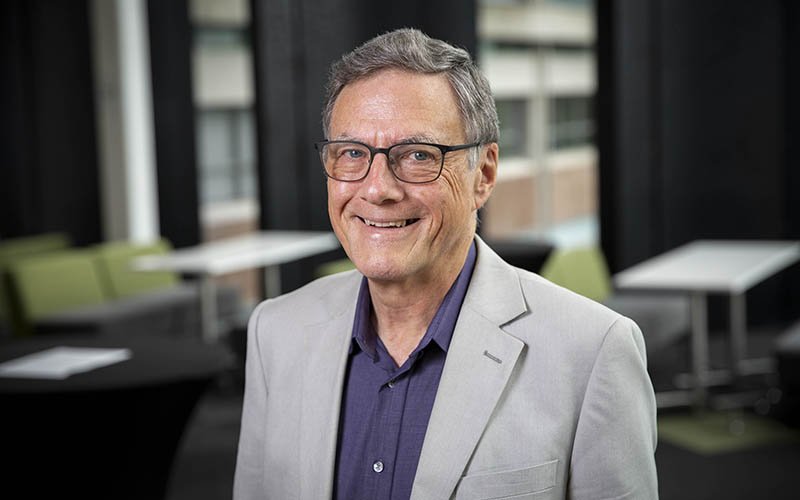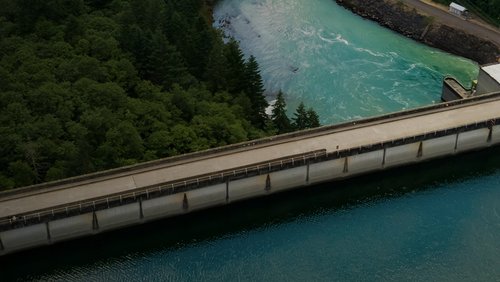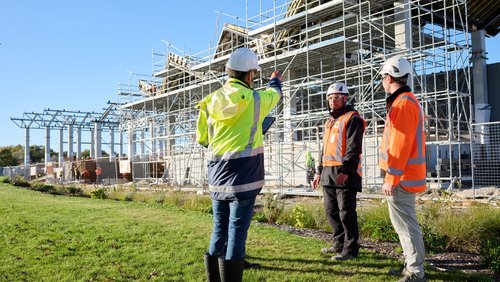16 Feb 2024
We caught up with Emeritus Professor Gerard Rowe, who recently retired from the University of Auckland after almost 40 years on the university staff. Hear about his career highlights and what he learnt from engineering students in his years of teaching.
Tell us about the various roles you held at the University of Auckland.
Since first joining the University of Auckland in 1984 (in what is now the Department of Electrical, Computer, and Software Engineering) I have taught at all levels (Year 1 to postgraduate). Apart from lecturing, research and research supervision, I have held the roles of Deputy Head of Department (Academic), Associate Dean of Teaching and Learning, Deputy Dean (Academic) and Dean of Engineering.

Photo: The University of Auckland
Looking back, can you share with us three of your career highlights?
Early in my teaching career, I developed a particular interest in identifying and correcting student conceptual misunderstandings and in curriculum and course design. That interest (and the research and professional practice arising from it) underlies three career highlights.
- Firstly - national and international recognition for sustained teaching excellence via a 2004 National Tertiary Teaching Excellence Award (for Sustained Excellence in Teaching) and a 2005 Australasian Association for Engineering Education Award for Excellence in Engineering Education (in the Teaching and Learning category).
- Secondly - promotion (in 2018) to the rank of Professor in recognition of contributions to teaching, education research and service and leadership in teaching and learning.
- Thirdly - election in 2019 as a Fellow of Engineering New Zealand, for services to Engineering Education.
What sparked your interest in the wonderful world of engineering?
My interest was prompted by Physics classes in high school. Specifically, classes related to the teaching of elementary optics and one particular class where the teacher spoke about unanswered questions such as wave/particle duality. I’ve subsequently found the problems that interest me the most are those complex problems for which no prior understanding/practice exists as a guide.
How has engineering education changed over the years?
The aim is still the same – to create an environment where graduates develop a solid grounding in fundamental engineering science; can analyse and design solutions to complex problems from first principles; and have developed appropriate professional skills. What has changed is the pedagogy, principally as a result of technical advances such as the internet. The lecturer is no longer the sole source of knowledge, responsible for transmitting this to engineers in training. Students can readily access information for themselves, often (unfortunately) in overwhelming quantities. Instead of being the sole source of knowledge, lecturers now have to transition from a “sage on the stage” pedagogy to that of a “guide on the side”. Future pedagogy will likely be increasingly informed by research (from cognitive science) on how people learn. The pandemic served to rapidly accelerate a trend that was already happening (albeit slowly) in tertiary education – to reduce the amount of formal (didactic) lecturing and move to blended learning. Some have questioned the future of lectures. I think there will always be a place for formal lectures, in particular, to provide structure to learning, especially for concept-rich courses. However, the confidence and competence that lecturers developed for online delivery during the pandemic will hasten the adoption of blended learning to the benefit of students’ academic outcomes.
How did you make the shift from being an academic in the classroom to overseeing teaching programmes and the strategic direction for engineering programmes at the University of Auckland?
The shift wasn’t a sudden dislocation. Instead, it was a steady shift from teaching to academic management and then academic leadership developed through the roles mentioned earlier as a Deputy HoD, an Associate Dean, a Deputy Dean and then Dean of Engineering. Preceding, and then in parallel with these roles, I was also fortunate to have the opportunity for extensive experience of committee work within the Faculty of Engineering, the University, the Profession (including Standards and Accreditation Board) and internationally through the Australasian Association for Engineering Education (AUEA). I’m particularly grateful to have had the opportunity to work closely (throughout the various roles I’ve held) with professional staff who support academic services within the University. Through these opportunities, I gained a broader perspective which later helped with setting strategic direction.c
What did you learn from the student engineers that you taught over the years?
There are many things I could say here, but for brevity, I’ll mention just one. I’ve particularly enjoyed working with first-year engineering students as they make the transition from high school graduates to tertiary students. Science and engineering are based on models, which if applied too close to the bounds of the assumptions or approximations that they are based upon will inevitably fail. I have a feeling that as people move from novice to expert learners, they develop a sense of what questions not to ask. That is a shame, as asking those uncomfortable questions may lead to the development of better models. By contrast, first-year tertiary students haven’t yet “learnt” what questions not to ask. For that reason, I found they kept me on my toes and caused me to question my own assumptions and conceptual understanding, thereby enriching my teaching (and hopefully their learning).
Why are you a member of Engineering New Zealand and why were you so passionate about encouraging student engineers to join Engineering New Zealand, during your time at the university?
I joined Engineering New Zealand so I could be part of, and contribute to, the local professional community that represented (and oversaw) the practice of engineering and the development of the next group of professional engineers. I encourage students to join Engineering New Zealand for the same reasons.
If you could meet any engineer in the world, who would it be and why?
It would be (the late) Paul Dirac, who whilst best known as a theoretical physicist, has a first degree in electrical engineering. He played a major role in integrating the various interpretations of quantum mechanics that existed in the early 20th century into an elegant formal structure. That included recognising the convergence of Newton’s “particles” and Faraday’s and Maxwell’s “fields” leading to Quantum Field Theory (QFT). Whilst playing a major role in the development of QFT (or at least its foundations), in later life Dirac expressed dissatisfaction with one key aspect of QFT (renormalisation). Some researchers feel his doubts have not been assuaged by the “effective field theory” approach that seems to have majority support today. As someone who has spent most of their research and teaching career studying Maxwell’s equations, I would welcome the opportunity to glean insight from one of the world’s greatest theorists.
Complete the following sentence. "Without engineers, the world would be...".
"...unrecognisable".
Engineers design, construct, maintain and decommission most of the infrastructure upon which we rely: e.g. transportation via roads, bridges and tunnels; clean drinking water and waste and stormwater disposal; structures from modest domestic buildings to high-rise towers; telecommunications; electric power generation and distribution etc.
What is your favourite piece of engineering in Auckland?
The Harbour Bridge. As a resident of Auckland’s North Shore, I have sailed under it or driven over it twice a day on a ferry or a bus travelling to and from work for many years. I admire those who designed and constructed it and who continue to maintain it. Recent weather events have occasionally required speed and lane restrictions and sometimes complete closure. The resulting impact underlines how much the Bridge is a key part of Auckland's infrastructure.




